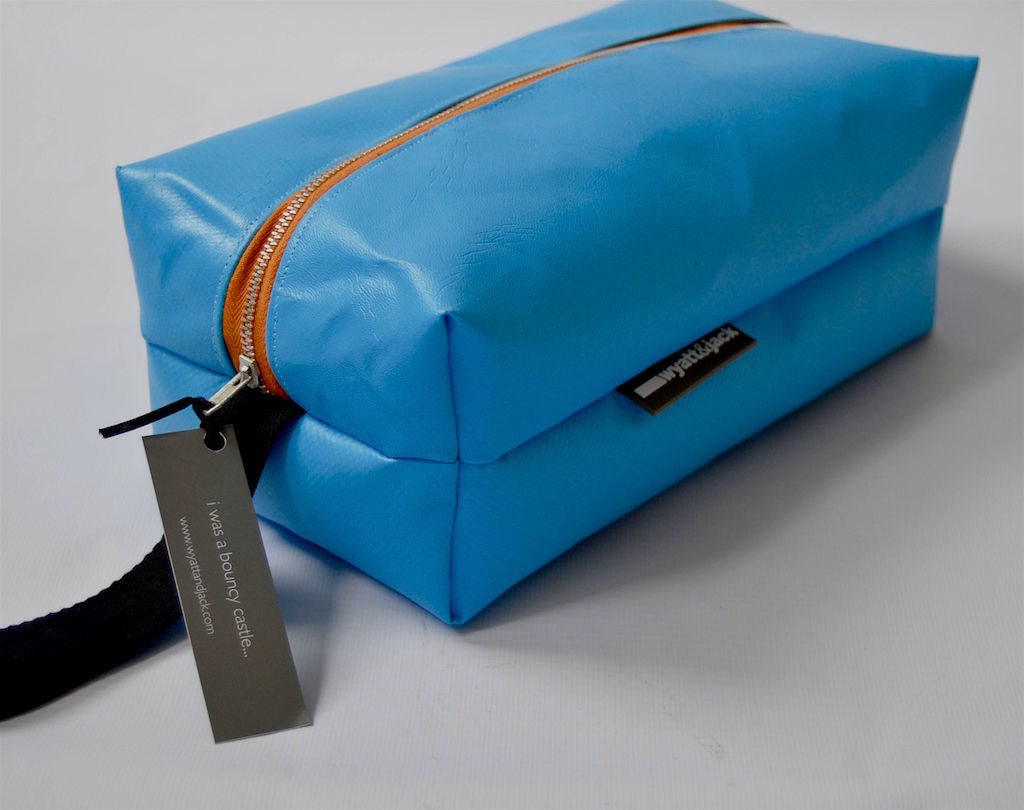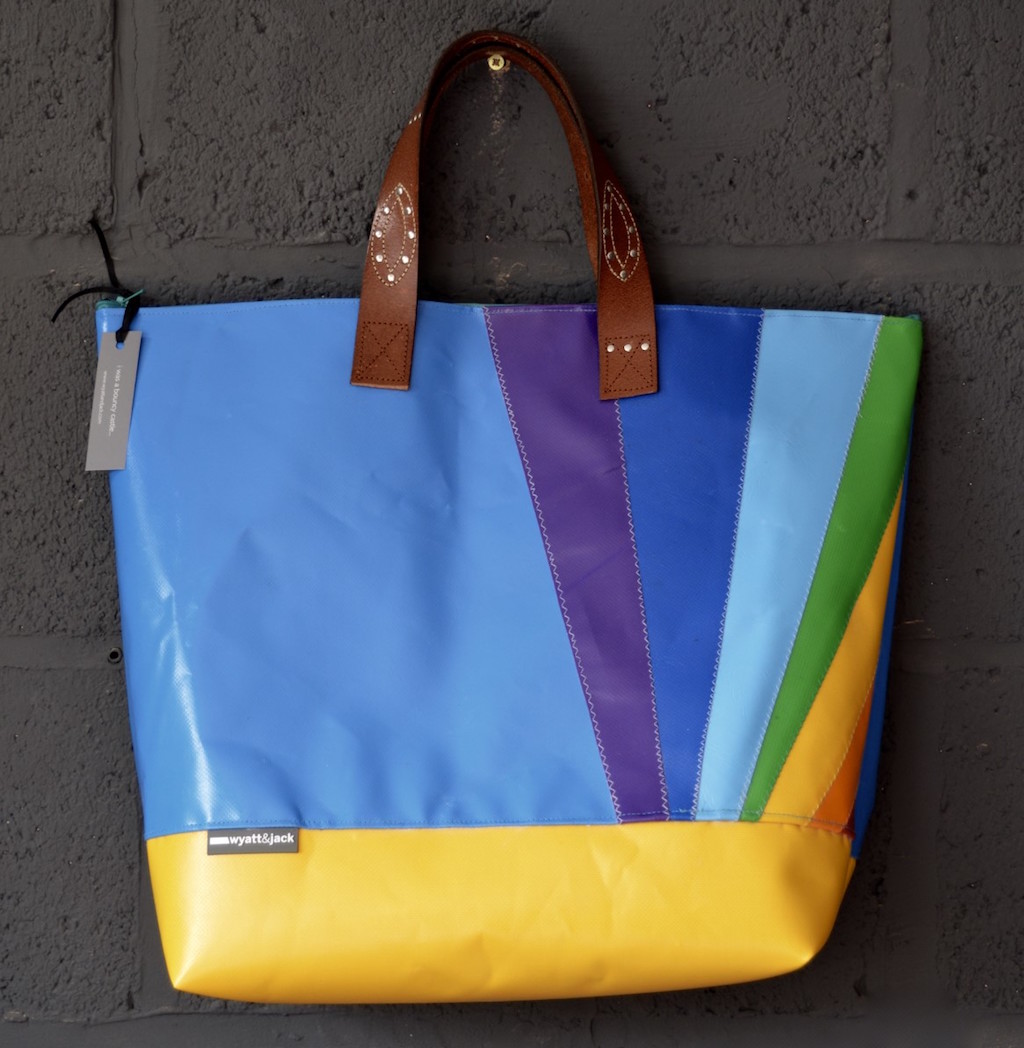3 Mins Read
Founded in 2010, British upcycled accessory brand Wyatt & Jack creates sustainable bags using materials that aren’t commonly recyclable. These include everything from canvas fabrics in beach deckchairs, broken inflatables and the PVC and vinyl from broken bouncy castles. Rather than letting these materials go to waste, Wyatt & Jack are amongst a host of sustainable fashion companies looking to innovate solutions for the global waste crisis and reduce the impact that fashion leaves on our planet.
READ: 8 Surprising Things That You Can’t Recycle
Based in the Isle of Wight, an island off the south coast of England, grassroots sustainable accessory brand Wyatt & Jack makes purses, backpacks and totes out of used, broken and often forgotten plastic materials. Each bag is also unique, as the design is dictated by the shape of the rescued item that will then be recycled into a new piece.

Rather than letting the non-recyclable materials like PVC and vinyl used to make furniture and toys end up polluting coastlines, waterways and oceans, Wyatt & Jack collects these materials to turn them into brand new upcycled bags. These fabrics are often used to make beach toys, bouncy castles and inflatables. For the bag handle, the company sources canvas from punctured traditional deckchairs along the beachside, diverting these from piling up in a landfill or burned in an incinerator.
Each and every bag from Wyatt & Jack is made in their local workshops in Bembridge and Ryde, using these very fabrics that have been either donated by the community through their multiple drop-off points, or have been salvaged from beach litter. You can too contribute to their Inflatable Amnesty campaign by mailing pieces directly to the husband-and-wife team. In the future, the brand hopes to start repairing products too, and supporting rental schemes in an effort to divert as much waste as possible away from landfills and oceans.
READ: Is A Circular Capsule Wardrobe The Answer To Being (Sustainably) Fashionable?

This comes as more companies are trying to shift to a circular economy model to fight the global waste and pollution crisis, of which the fashion industry is a major contributor. According to figures revealed at the Copenhagen Fashion Summit, the fashion industry is responsible for 92 million tonnes of annual landfill waste, 10% of greenhouse gas emissions and 20% of global water wastage. Bottletop, for instance, is another British sustainable brand that uses ocean plastic waste to create luxury handbags.
And this isn’t just a Western phenomenon, with upcycled fashion labels also becoming trendy right here in Asia. Just a few months ago, Hong Kong-based The R Collective debuted their new collection of elegant garments made using rescued textile waste.
All images courtesy of Wyatt & Jack.




